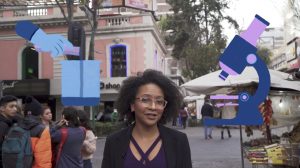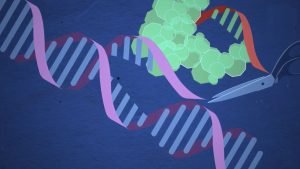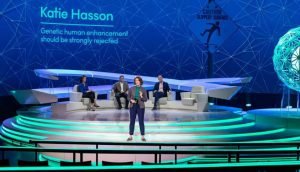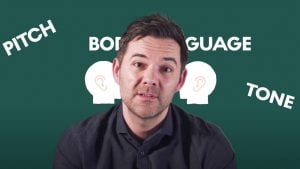
Future of Genetics
Gene editing allows scientists to change an organism’s DNA, and the science behind it has accelerated in the past decade, thanks to a tool known as CRISPR. CRISPR heralds a new phase in human evolution: We now have the ability to change and rewrite our genetic code.
Unit 1: Doha Debates Asks
Future of Genetics: Would You Genetically Modify Something About Yourself?
Essential questions
- What is the first thing that comes to mind when you hear the term “gene editing”?
- What are the benefits of gene editing?
- Could gene editing increase inequality?
- Where should we draw the line in gene editing?
- Who should be responsible for regulating gene editing?
- Would regulating gene editing hinder scientific advancement?
- What would the world look like if gene editing were widely available?
Unit 2: The Perfect Human
The Perfect Human: Gene Editing & CRISPR
Nelufar Hedayat gives you a breakdown of the promises and problems with genetic editing.
Essential questions
- What issues would come from choosing a child’s characteristics like eye color?
- Why would people want to edit DNA?
- Which diseases should be prioritized to possibly cure or eliminate?
- Who should oversee gene editing technology?
- What are the moral and ethical issues with gene editing?
- Which physical attributes would people most want to change?
- What socio-economic impacts might come from gene editing technology?
Unit 3: Biohacking and other short videos about gene editing
Future of Genetics
Josiah Zayner is a biohacker who thinks everyone should be able to change their DNA with biotechnology called CRISPR. That’s why he founded a company called The ODIN, which sells do-it-yourself biotech kits that teach people how to genetically modify bacteria and frogs. It's DIY gene therapy.
His company has sold tens of thousands of experiments using CRISPR, an inexpensive and precise gene-editing technology that has revolutionized the field.
Essential questions
- How far should gene editing be allowed to advance?
- What might happen if gene edited species interbreed?
- Who should create gene editing guidelines?
- What might happen if gene engineering technology allows for DIY capabilities?
- Who should be able to change their own DNA?
- What role will government play in the future of gene editing?
Unit 4a: Speaker Julian Savulescu
Julian Savulescu: Genetic Enhancement Is a Moral Obligation
Philosopher and bioethicist Julian Savulescu talks about why genetic enhancement is a moral obligation.
Essential questions
- What is the importance of human wellbeing?
- In what ways does nature not allocate genes equally in humans?
- How is wellbeing appealed to in daily life?
- Which biological interventions are already being used?
- How are people able to avoid genetic disorders with current technology?
- Why might we not need as much genetic diversity as we once did?
- What role does ethics play in human enhancement?
- How might our species change with gene editing?
Unit 4b: Speaker Katie Hasson
Katie Hasson: Germline Editing is Not Safe, Not Needed & Unethical
Policy advocate Katie Hasson argues against gene editing and the ethics of it.
Essential questions
- What might happen if we are able to completely manipulate a baby’s DNA?
- How might privilege and wealth play into the use of gene editing?
- What ethical issues will come from human enhancement?
- Who will benefit most from gene editing?
- What benefits come from the use of gene editing?
- What role should governments play in regulating the use of gene editing?
- In what ways might children be treated differently who have been genetically enhanced?
Unit 4c: Speaker Jamie Metzl
Jamie Metzl: Engineering Immunity to Pathogens Like Coronavirus
Futurist Jamie Metzl makes his argument for gene editing and how the coronavirus might come into play in the future.
Essential questions
- In what ways are people today already super human?
- How is technology affecting human development?
- What benefits will gene editing bring to babies?
- What are the moral and ethical implications of gene editing?
- What are the risks to using gene editing on future humans?
- Why are some people afraid of the use of gene editing?
- How will we balance our values against what technology is able to create?
Unit 5: Connector
How to get along with other people
Essential questions
- What is a Majlis?
- Why are people cautious about gene editing?What is the moral responsibility that comes with gene editing?
- How might gene editing reinforce racial biases and prejudice?
- Who will set the standards for gene editing?
- How will we make gene editing equitable and accessible to all?
- What role should government play in gene editing?
About Deep Dive
Doha Debates hosts discussions on the world’s most pressing challenges to bridge differences, build consensus and identify solutions. In each moderated live debate, experts share their experiences and propose concrete plans. Doha Debates also offers digital resources such as videos and articles to help students build a deep understanding of the issues and to foster ongoing conversations.












